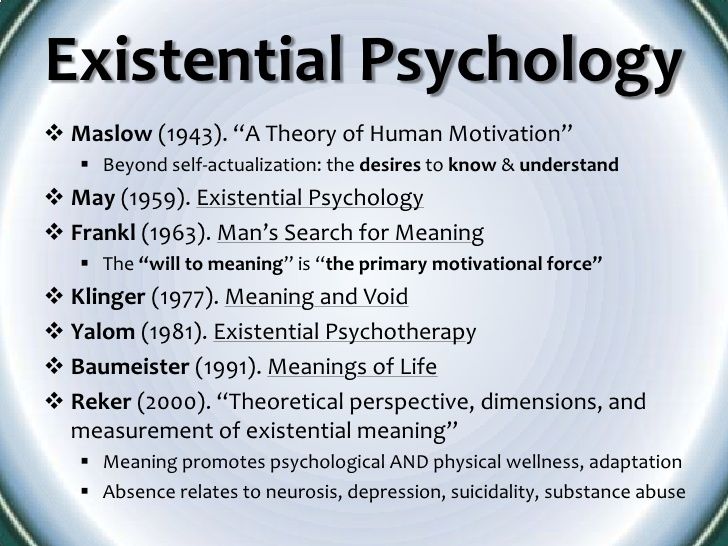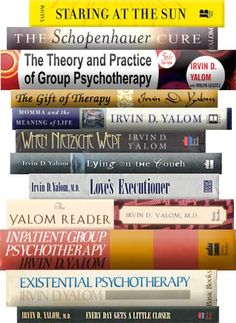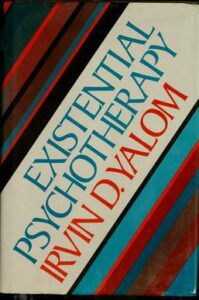If you’re considering existential psychotherapy, this in-depth guide is a great place to start. In this article, we’ll explore what existential psychotherapy is, who it can help, how it works, and the benefits it offers. We’ll also look at some of the limitations of this psychotherapy and provide advice on how to find an experienced therapist who can help you explore this approach.
Contents
Understanding Existential Psychotherapy
Existential psychotherapy is a type of therapy that focuses on the human condition and the search for meaning in life. Thus, it can be beneficial for people who are struggling to make sense of their lives. Or who feel like they’re going through a rough patch or period of transition. As in this therapy, the therapist helps the client to explore their existence, their values, beliefs, and purpose in life.
Theory Behind Existential Psychotherapy
This psychotherapy is based on the idea that we all have an innate need for meaning and purpose in our lives. This need becomes more pronounced during times of crisis or transition. As we may feel lost or confused about our place in the world. Here, the role of the therapist is to help the client to explore their existence and to find meaning in their life through a process of self-discovery.
History And Development

This psychotherapy is a relatively new approach, but it has its roots in existential philosophy.
The first existential therapist was Viktor Frankl, who developed the approach after surviving Nazi concentration camps during World War II. Again, he based his approach on the idea that we all have an innate need for meaning and purpose in our lives.
Using this approach, Frankl used existential psychotherapy to help people who had been through traumatic experiences. He made them explore or make sense of their lives and find meaning in their suffering.
Since then, this psychotherapy has been developed and refined by other therapists, such as Irvin Yalom and Rollo May.
Existential Philosophy In Recap
Existentialism is a philosophical movement that emphasizes the existence of the individual self and the subjective experience of life. It focuses on the human condition, our relationship with the world around us, and our search for meaning in life.
The main ideas of existentialism are freedom, choice, and responsibility. We are free to choose how we want to live our lives, and we are responsible for the choices we make.
Existentialists believe that life is meaningless unless we give it meaning. This means that each of us has to create our own purpose in life. We do this by making choices and taking responsibility for our actions.
Unfolding Existential Psychotherapy

Existential psychotherapy is a type of therapy that can be beneficial for many people but isn’t widely known or understood.
Who Can It Help
Existential psychotherapy can be beneficial for people who are struggling with a range of mental health conditions, including anxiety, depression, trauma, and substance abuse.
It can also be helpful for people who are going through a difficult period in their lives or who feel lost and purposeless.
It can also be helpful for people who have experienced a traumatic event. Such as a natural disaster, the death of a loved one, or an act of violence.
How Does It Work
Existential psychotherapy focuses on the human condition and the search for meaning in life. It is a process of self-discovery, in which the therapist helps the client to explore their existence, their values, beliefs, and purpose in life.
The therapist may use a variety of techniques, such as free association, dream analysis, and role-playing. The therapist will also encourage the client to explore their thoughts and feelings about death, freedom, and responsibility.
Role of Death, Freedom, and Responsibility
Death, freedom, and responsibility are central concepts in existential psychotherapy.
- Death is a natural part of life, and it is something that we all must face. In existential therapy, the therapist helps the client to come to terms with their own mortality. And to understand that death is a natural part of the human experience.
- Freedom is another central concept in existential therapy. Thus, we are free to choose how we want to live our lives. Moreover, this means that we are responsible for the choices we make.
- Responsibility is a key theme in existential psychotherapy. We are responsible for our own lives and for the choices we make. This can be a difficult concept to accept, but it is an important part of the existential experience.
Techniques Used In Existential Psychotherapy
The therapist may use a variety of techniques in this psychotherapy, including discussion, reflection, and journaling.
- Discussion: The therapist will encourage the client to discuss their thoughts and feelings about the topics covered in therapy. As a result, it will help the client to gain a greater understanding of themselves and their place in the world.
- Journaling: The therapist may encourage the client to keep a journal. Since this may allow them to explore their thoughts and feelings about the topics covered in therapy.
- Reflection: The therapist will reflect on the client what they have said or written in the journal. As it allows them to identify loops and help them see things from a different perspective.
The other techniques include, such as free association, dream analysis, and role-playing.
- Free Association: In this technique, the client is encouraged to say whatever comes to mind without judgment. This can help to surface buried thoughts and feelings.
- Dream Analysis: The therapist will help the client to interpret their dreams; which can be a useful way of exploring the unconscious mind.
- Role-Playing: In this technique, the therapist and client take on different roles to explore a particular issue. For example, the therapist may play the role of a loved one who has died. And the client may play the role of the bereaved.
Furthermore, the therapist may also encourage the client to engage in creative activities, such as art or writing.
Evaluating Existential Psychotherapy

Several studies have found that existential psychotherapy can help people who are struggling with life transitions or a range of mental health conditions.
- One study has found that existential psychotherapy can be beneficial for people who are going through a difficult period in their lives or who feel lost and purposeless.
- Another study found that existential psychotherapy can be helpful for people who are struggling with anxiety, depression, and trauma.
Benefits of Existential Psychotherapy
Existential psychotherapy has several benefits, including:
- help clients to find meaning in their life,
- to understand themselves better, and
- to develop a more positive outlook on life.
As a result, it helps the client to develop coping strategies for dealing with difficult situations. In addition, it also helps improve their relationships with other people.
Limitations of Existential Psychotherapy
- Existential psychotherapy is not suitable for everyone. And it may not be right for everyone who is struggling with a mental health condition.
- Moreover, there is still more research needed to determine the effectiveness of existential psychotherapy for specific mental health conditions.
Therefore, it is important to speak to a mental health professional before starting any type of therapy, including existential psychotherapy.
Why Consider It
If you are going through a difficult period in your life or you feel lost and purposeless, then existential psychotherapy may also be beneficial for you. However, people who are not ready or willing to explore their existence and the meaning of life may not benefit from this approach.
Finding an Existential Psychotherapist
If you are interested in finding an existential psychotherapist, there are a few things you can do.
- You can start by asking your doctor or mental health professional for a referral.
- You can also search online for therapists who specialize in existential psychotherapy.
What To Look Out For
When searching for an existential psychotherapist, there are a few things you should look out for.
- First, make sure that the therapist you are considering has experience and training in existential psychotherapy.
- Second, make sure that the therapist is someone you feel comfortable with and who you can trust.
- Third, make sure that the therapist is willing to work with you on your specific needs and goals.
Red Flags Not To Avoid
When searching for an existential psychotherapist, there are a few red flags you should be aware of.
- First, avoid therapists who claim to have all the answers or who promise quick fixes.
- Second, avoid therapists who are not willing to work with you on your specific needs and goals.
- Third, avoid therapists who are not open to feedback or who seem closed-minded.
Hearing From Experts

“Existential psychotherapy is a form of therapy that can help people make sense of their existence and the meaning of life.
It can be beneficial for people who are struggling with a range of mental health conditions, including anxiety, depression, trauma, and substance abuse.
It can also be helpful for people who are going through a difficult period in their lives or who feel lost and purposeless.
Existential psychotherapy may not be suitable for everyone. People who are not ready or willing to explore their existence and the meaning of life may not benefit from this approach.”
-Dr. John D. Lyon, Existential Psychologist and Professor of Psychology at The University of Southern Mississippi
“Existential psychotherapy is a unique form of therapy that can help people make sense of their lives and find meaning in the face of suffering.
While it is not suitable for everyone, it can be helpful for people who are struggling with a range of mental health conditions, including anxiety, depression, and trauma.
If you are considering existential psychotherapy, it is important to find a therapist who has experience and training in this approach.”
-Dr. Aaron T. Beck, Existential Psychologist and Professor Emeritus of Psychology at the University of Pennsylvania
Case Study
John is a 38-year-old man who has been struggling with anxiety and depression for many years. He has tried a variety of different treatments. But nothing has seemed to help. Then John’s therapist suggested that he try existential psychotherapy.
At first, John was hesitant to try this approach. He was not sure if he was ready to explore the meaning of life and his own existence. However, after talking with his therapist and learning more about existential psychotherapy; John decided to give it a try.
Subsequently, John found that existential psychotherapy helped him make sense of his life and find meaning in the face of his suffering. In addition, he was able to work through his anxiety and depression with the help of his therapist. Furthermore, he now feels more hopeful about his future.
Resources

If you are interested in learning more about existential psychotherapy, there are a few resources that you may find helpful.
- The Existential Psychotherapy Center: This website provides information about existential psychotherapy, including articles, videos, and a directory of therapists.
- The Association for Existential Psychology and Psychotherapy: This website provides information about existential psychology and psychotherapy, including resources, events, and training opportunities.
- Existential-Humanistic Institute: This institute offers training in existential-humanistic psychology and therapy. They offer a variety of resources on their website, including articles, podcasts, and videos.
Conclusion
Existential psychotherapy is a unique form of therapy that can help people make sense of their lives and find meaning in the face of suffering. While it is not suitable for everyone, it can be helpful for people who are struggling with a range of mental health conditions. Such as anxiety, depression, and trauma. If you are considering existential psychotherapy, it is important to find a therapist who has experience and training in this approach.
A Word From Therapy Mantra
Your mental health — Your psychological, emotional, and social well-being — has an impact on every aspect of your life. Positive mental health essentially allows you to effectively deal with life’s everyday challenges.
At TherapyMantra, we have a team of therapists who provide affordable online therapy to assist you with issues such as depression, anxiety, stress, workplace Issues, addiction, relationship, OCD, LGBTQ, and PTSD. You can book a free therapy or download our free Android or iOS app.


